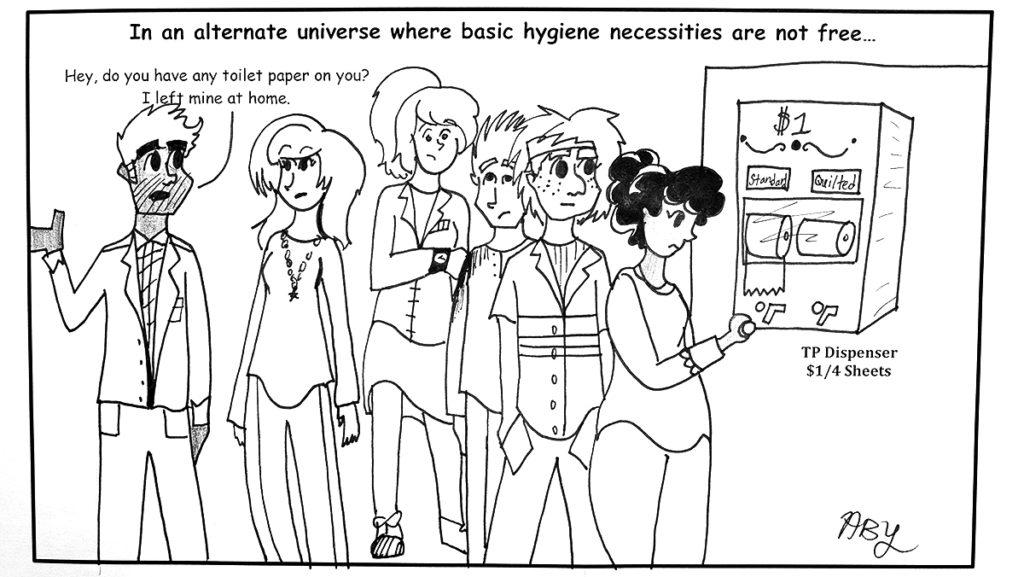A woman will spend an average of about $7,000 in her lifetime on items unique to her sex, and it’s not a choice. It’s biological.
Despite the monthly nature of a woman’s menstrual cycle — and the burdens that accompany it — women are still expected to endure a financial cost to take care of their periods. In recent years, more cities and states have taken steps to make menstrual hygiene products more affordable or free to women. The Student Governance Council has recognized this burden in its passing of a bill proposing tampons and pads be available free of cost to women in bathrooms across campus.
This bill is a small step forward in recognizing the right women should have to freely access menstrual hygiene products when they need them. Given that periods are a recognized biological function of women, it simply makes sense that women should have access to the products they need.
To compare, toilet paper is found free of charge in public restrooms for men and women. Using tampons or pads to absorb blood during a woman’s period serves a similar function of necessity for women. Yet the reality that women must pay an economic price for their own needs, while toilet paper remains free in public restrooms, suggests an expectation that women should not be able to freely access the materials they need to stay healthy. It turns taking care of a biological need into an economic burden.
Pricing women’s menstrual hygiene products also maintains a classist lens by prioritizing which women have access to basic necessities and which do not. The price of tampons and pads makes them more readily available to middle-class and upper-class women who can afford to consistently buy these products without incurring a heavy financial impact. But the story is different for poor and homeless women, who often have to make choices between food and menstrual products.
The SGC bill is promising, and responsibility now rests on the college to implement this measure and for the student body to recognize its importance and support it. Forcing women to pay for biological functions that are out of their control sends a subtle message that womanhood is inherently a burden. There is a long way to go toward free menstrual hygiene products on a societal level, as there is a large industry built around these products, but the college should join the growing group of leaders affirming this right to basic necessities for women.















